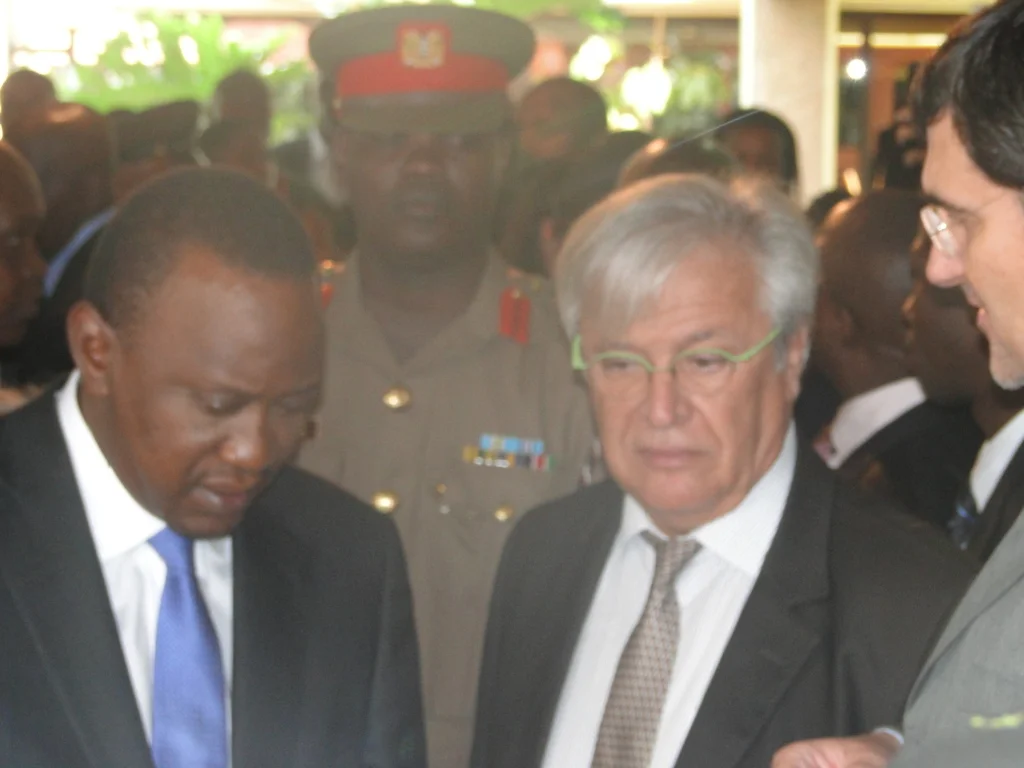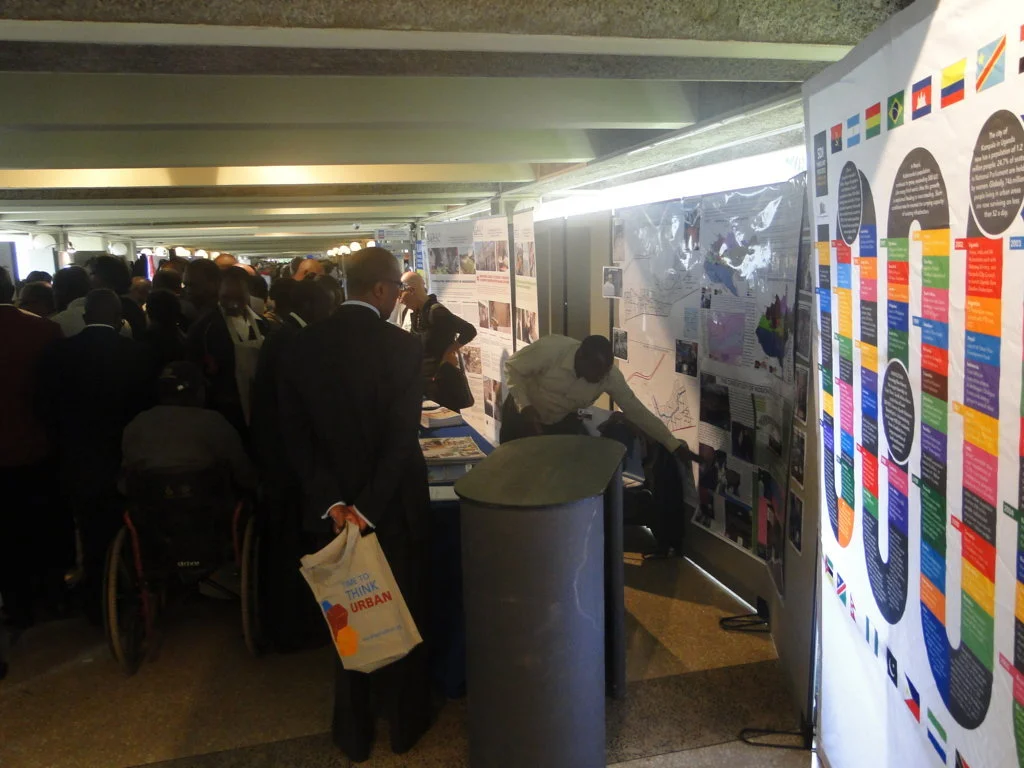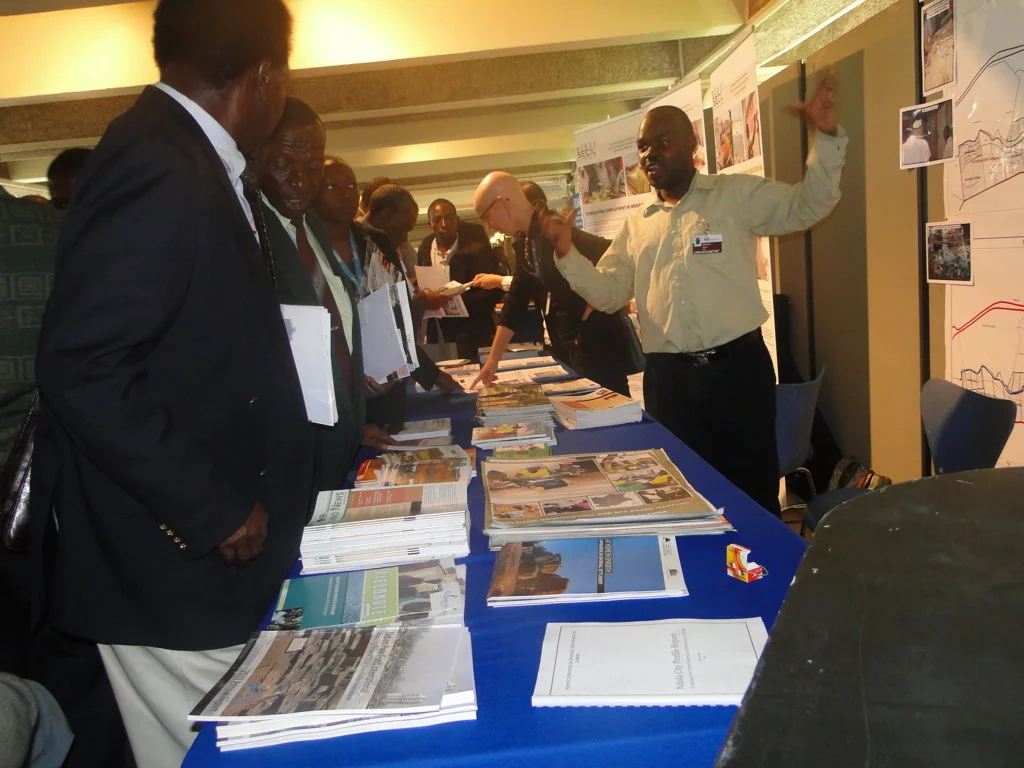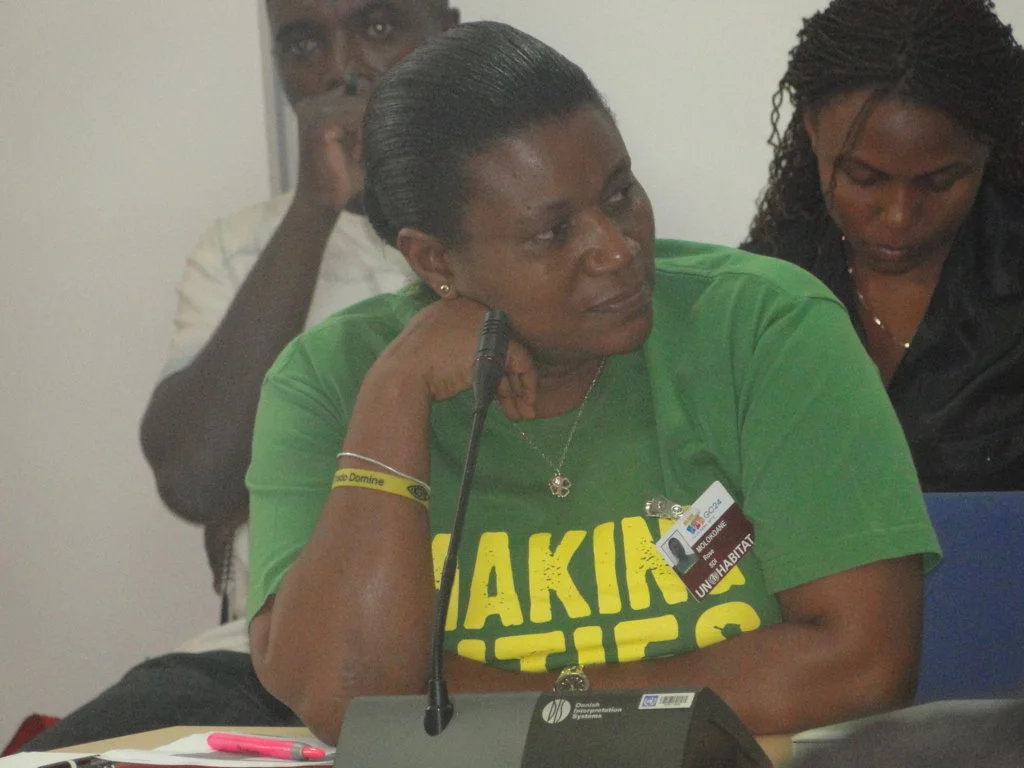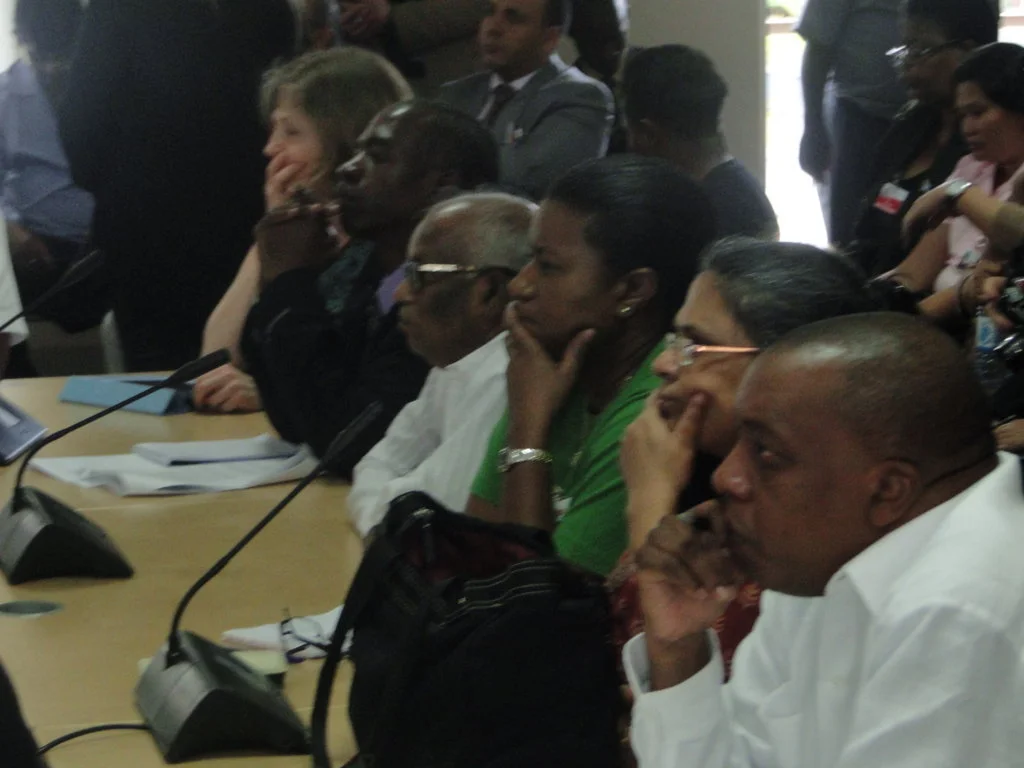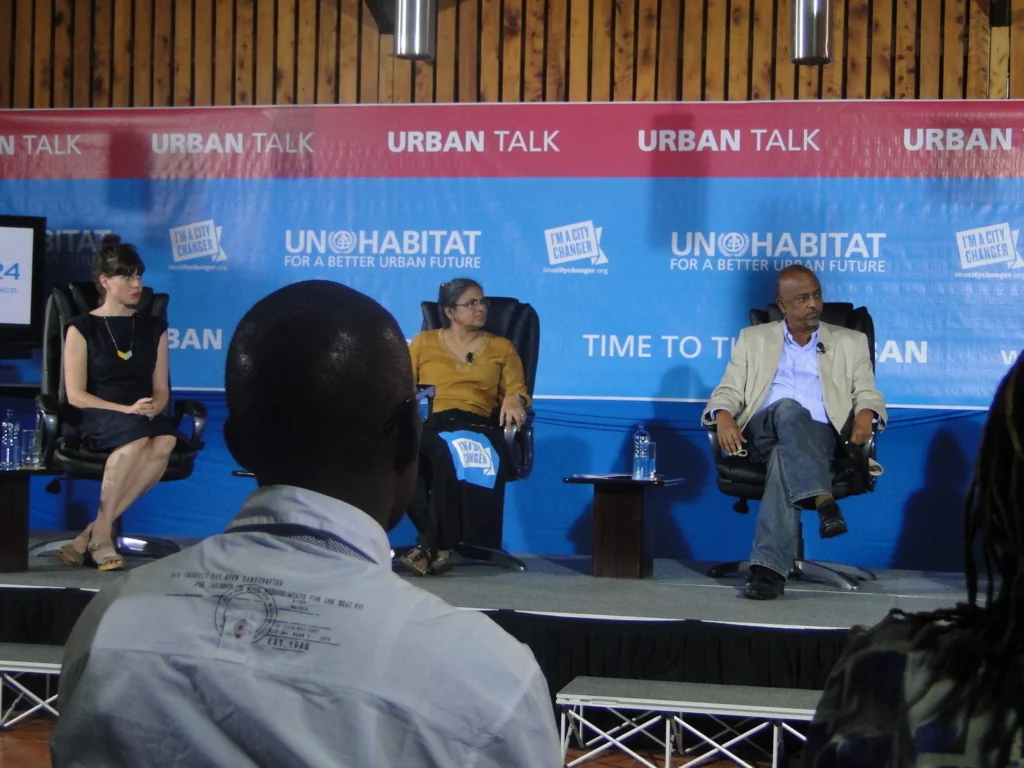Think Urban, SDI Participates in the UN-Habitat Governing Council Conference
By Shadrack Mbaka
The Slum Dwellers International global network was well represented at the concluded twenty-fourth biennial meeting of governments in the Governing Council of UN-Habitat held at the UN Complex in Gigiri, Kenya Kampala from the 14th to the 19th of April, 2013. This year’s theme was Sustainable Development: The role of cities in creating improved economic opportunities for all, with special reference to youth and gender’ recorded several firsts.
The 24th Governing Council was officially opened by the President of Kenya, His Excellency Uhuru Kenyatta on the 14th of April in an event twinned with the opening of the exhibition arena. It was the first major gathering Kenya’s newly elected President Uhuru Kenyatta was presiding over and it was also the first Governing Council in the history of the United Nations Office at Nairobi (UNON) whose opening was broadcast live on national television. The meeting also saw two live broadcasts of the exciting Urban Talk series.
The Kenya Federation of Slum Dwellers displayed items from their small income generating activities such as beautiful crafts, artifacts, jewellery, mats among others. NSDFU also displayed sanitation and housing models demonstrating low cost technology and to help demonstrate the cost effectiveness of federation projects capturing SDI global initiatives in uplifting the lives of the urban poor.
The team at the Muungano wa Wanavijiji/SDI/Muungano Support Trust booths established contact with County governments and International delegates representing governments. However, it was interesting to note that SDI works is well known on a global scale. It was a privilege for the SDI fraternity to be invited in many side events at the complex.
Many delegates visited the SDI/Kenyan Alliance booth to see the many published materials on the works of the SDI global networks and federations. Shadrack Mbaka, Jane Wairutu and Edwin Simiyu of the Kenyan Alliance supervised the SDI/Kenyan Alliance exhibition booth.
The twenty-fourth biennial meeting of governments in the Governing Council of UN-Habitat came to a close in Nairobi on Friday 19 April 2013 with a broad consensus on the relevance of sustainable urban development and the important role the agency is playing in the United Nations system.Several resolutions were adopted after five days of intense discussions and negotiations impacting positively on the work of UN-Habitat and the lives of millions of urban dwellers.Rose Molokoane, one of the SDI coordinator gave a phenomenon presentation in a panel session guided by Mohammed Mohamed El-Sioufi of Un –Habitat, on SDI’s participatory housing and Slum Upgrading initiatives across its global networks and through engagements governments have been able to incorporate communities in national upgrading projects and whose views they have appreciated because of the communities skills in modern day slum upgrading.
Rose also cited examples of Uganda, South Africa, and Kenya where targets of vulnerable group in society especially the urban poor, and especially women and young people have been involved to realize this course. Slum Dwellers International strives to broaden gender equality and women’s rights to participate in the developmental agenda across the global urban poor network by supporting and strengthening gender awareness. SDI recognizes that women, particularly those living in extreme poverty and suffering from domestic violence, continue to suffer multiple forms of discrimination, among other things, with respect to ownership of property and access to adequate housing and Governments and local authorities to involve women in decision-making at all levels of government and to encourage their participation in human settlements development planning, strengthen gender mainstreaming in local governance, including in resource allocation and delivery of basic services including water and sanitation programmes.
On his part SDI president, Jockin Arputhum centered his presentation on some of the urban challenges facing the urban poor. Jockin stressed on the reality of slums and informal settlements are a reality that cannot be ignored and that governments must plan for them.
The two live TV shows were relayed by Nation TV and attracted good viewership as urbanisation experts, including UN-Habitat Executive Director Dr. Joan Clos, Shela Patel discussed the matter. In her televised participation on safer cities, Sheela Patel was keen on addressing the safety of the urban poor with concern to women and children living in abject poverty in the people’s settlements. Sheela gave an example of India, where women within Mahilla Millan took it upon themselves to address issues of insecurity in India. The Women have partnered with the commissioner of Police to ensure a sense of security to communities living in settlements, by virtue of the formation of Community policing.
Safer Cities Programme was launched in 1996. Its initial focus was on Africa, at the request of African mayors who were concerned by the extent of violence in their cities and wanted help with the development of prevention strategies at city level.The Safer Cities Programme of UN-Habitat has been accumulating theoretical and practical knowledge on urban violence prevention issues for almost fifteen years. Focused on urban management and vulnerabilities regarding urban violence at a local level, Safer Cities has developed specific tools and strategies to address urban vulnerabilities vis-à-vis violence and offences.To date, Safer Cities initiatives are well under way in several African cities and are also being replicated at the national level in some of the pilot countries in Africa. The programme has been extended to Latin America, Asia and Port Moresby, Papua New Guinea, catering for an increasing need for exchange of information, knowledge and good practices between national, regional and local governments as well as civil society, non-governmental organisations and the international level.
According to the Un- Habitat Website a total of 1144 delegates from 107 countries attended the meeting representing national governments, local authorities, private sector, civil society as well as media.
The work programme and budget of the agency for the next two years was approved. There was also a resolution to give full support for the preparations of the Habitat III conference to be held in 2016 where a new global urban agenda will be formulated.
The Governing Council whose theme was ‘Sustainable Development: The role of cities in creating improved economic opportunities for all, with special reference to youth and gender.

